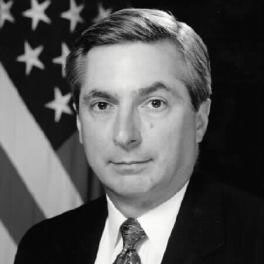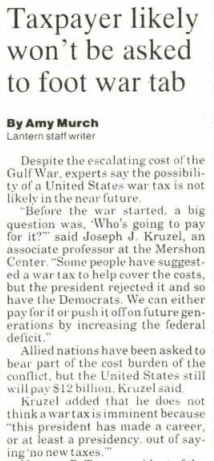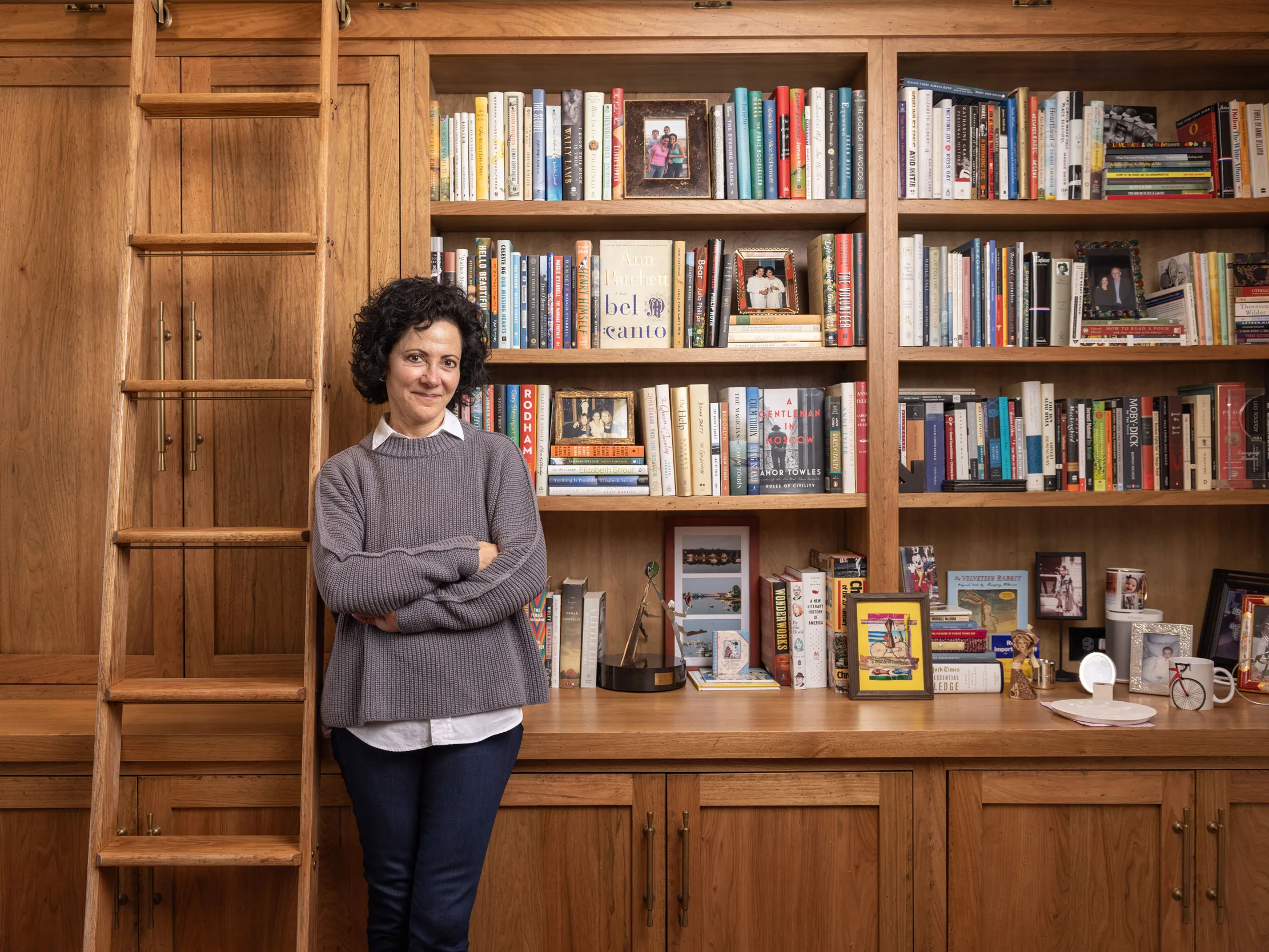Lessons in diplomacy from a fallen peacemaker
A student of Joseph Kruzel’s recalls the professor’s brilliance—and his tragic death 30 years ago in Bosnia’s brutal conflict.

August 1995, Santa Maria, California

“Hey Richard, have you seen the news? I think one of our professors just died in Bosnia” was the first message on my answering machine, left by a close friend from Ohio State. The second message was from my sister asking if I’d known the Ohio State professor she’d heard about in the news. I’d just returned to my apartment after a six-hour simulator evaluation at Vandenberg Air Force Base. It was late afternoon on the West Coast, and I’d yet to see the news.
January 1986, Ohio State
“How do countries interact with each other? How do they resolve disputes? Who decides what the rules are for international relations?” These were questions Associate Professor Joseph Kruzel posed to us on that cold, snowy Monday morning, the first day of winter quarter. It was immediately clear to all of us that PoliSci 345, “Interpretive International Relations,” would be no ordinary class.

Over the next 10 weeks, we learned the foundations of international law and customs, how the failure of the League of Nations led to the initial successes of the United Nations, how the Bretton Wood Conference led to the creation of the International Monetary Fund, how the wartime conferences at Quebec, Tehran, Yalta and Potsdam defined post-war Europe. We discussed how NATO was successful, whereas the Southeast Asia Treaty Organization (SEATO) was not—and why. Most important, we discussed arms control and conflict resolution, and how the United States and the Soviet Union could make headway toward meaningful nuclear weapons reductions.
This was less than a year after Mikhail Gorbachev had come to power, following the deaths of three Soviet premiers in three years. It was a mere 2½ years after the Soviets shot down Korea Air Lines Flight 007, killing 269 innocent passengers. We also discussed terrorism in the Middle East (Beirut and the Rome and Vienna bombings of the weeks prior fresh in our minds) and how the Camp David Accords changed the regional dynamic
Kruzel was a superb orator and an impassioned inquisitor. Instead of merely lecturing, he employed the Socratic method, asking us the questions and encouraging critical thought about the motivation of international players and their constituencies.
He was the real deal—he’d actually applied diplomacy and statecraft beyond Derby Hall. He didn’t talk much about himself at first; however, by the end of the semester we’d discovered amidst class discussion that he’d graduated from the U.S. Air Force Academy and served during the Vietnam War. After, he continued his education at Yale University, earning his PhD there. We were fascinated to learn about the nuances of negotiation at the Strategic Arms Limitation Talks and what it was like to work amid the Nixon, Ford and Carter administrations. We were exposed to diplomacy at the highest levels, presented by a warrior-scholar and diplomat in the friendliest manner.

Kruzel was an inspiration, possessing intellectual acumen and a wry sense of humor. He encouraged us as Buckeyes to make a difference despite the ongoing geopolitical perturbations. He fueled our imaginations and was the catalyst for many of our later successes in life. Indeed, several of my PoliSci 345 classmates went on to serve in the State Department, as military officers and in Congress. A close friend went on to become a U.S. attorney, another an assistant attorney general in Ohio. All of us were products of Kruzel’s tutelage—he was the professor who made a difference.
August 1995, Sarajevo, Bosnia
Kruzel was serving as the U.S. special envoy to Bosnia for the Defense Department, appointed by President Clinton on the heels of his service as deputy assistant secretary of defense for European and NATO policy. He’d helped create the Partnership for Peace, an initiative to bring former Warsaw Pact nations toward Western ideals of democracy and civilian control, which bears fruit to this day.
His assignment now was to represent the United States and help negotiate an end to the ongoing wars in Bosnia-Herzegovina and the rest of the former Yugoslavia. He was on his way to wartorn Sarajevo, traveling with two fellow diplomats in an armored personnel carrier on a wet, narrow road near Mount Igman. The road suddenly gave way, and the armored vehicle plunged down a 500-meter ravine. Kruzel and his colleagues were killed.
The secretary of defense, William Perry, said, “When he died, my office was flooded with letters from the leaders of European countries—presidents, foreign ministers, defense ministers, military leaders. They all knew Joe. They all respected his achievements, and they cherished his vision.”
Needless to say, they weren’t the only ones. In 1986, we admired and learned from Kruzel; he was the penultimate professional warrior-scholar-diplomat, and we were privileged to have the opportunity to learn from him.
Kruzel is buried in Arlington National Cemetery, in Section 30, Lot 621, close to his father, Major Gen. Joseph Kruzel, USAF retired. Upon return from an overseas deployment, I paid my respects and thanked my former professor for his service, not only as a scholar but as a diplomat and peacemaker. He is exemplary of how Ohio State University instructors, students and staff can make a worldwide impact for good.
About Richard Hughes ’88
After graduating, Hughes served as a United States Air Force Officer for over 20 years, applying what he learned at Ohio State implementing U.S. foreign policy while conducting natural disaster response/humanitarian assistance efforts, combat deployments and nuclear deterrence operations. He served in myriad leadership positions in bomber, ICBM and space operations units, and was on duty inside Cheyenne Mountain on 9/11/2001.
Hughes served as a strategic planner at U.S. Strategic Command, flying aboard the Looking Glass aircraft, before teaching graduate school at the Air Command & Staff College and Air War College. Subsequently, he served as a Combat Support Group and AFROTC Commander before retiring from the USAF.
In his “second life” as a civilian, Hughes currently serves as the Deputy Program Manager for Nuclear Matters in a System Program Office in Ohio. A Veterans Of Foreign Wars Post Commander, he is still serving veterans and their families, and seeks to connect with all Buckeye veterans, especially those who‘ve served in Iraq, Afghanistan and Southwest Asia over the past 30 years.
The Joseph J. Kruzel Lecture
Each year, the Mershon Center for International Security Studies hosts a lecture to honor the memory of Joseph J. Kruzel Jr. (1945-1995). Kruzel taught political science at Ohio State between episodes of public service.


